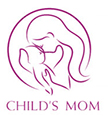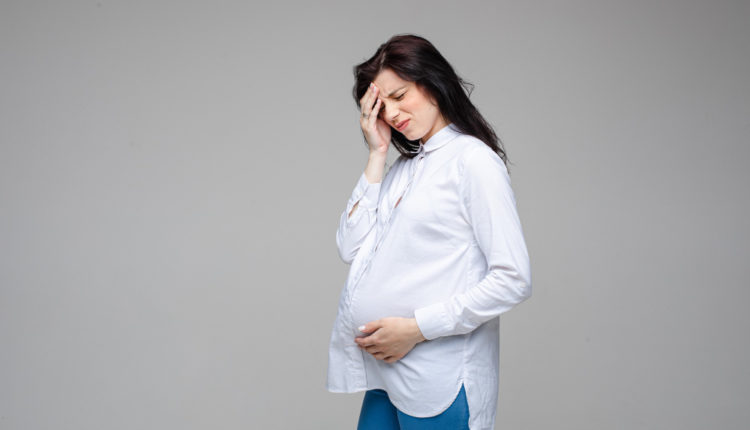Pregnancy is a beautiful journey filled with anticipation and excitement. However, it’s essential to be aware of potential complications that can arise during this period. Preeclampsia is one such complication that can affect expectant mothers. In this article, we will explore the early signs of preeclampsia and why it’s crucial to recognize them. We’ll discuss symptoms, risk factors, and preventive measures to ensure a healthy pregnancy.
Understanding Preeclampsia
What is Preeclampsia?
Preeclampsia is a pregnancy complication characterized by high blood pressure and damage to other organs, usually the liver and kidneys. It typically occurs after the 20th week of pregnancy but can develop earlier in some cases.
Who is at Risk?
Certain factors increase the risk of developing preeclampsia, including first-time pregnancies, a family history of the condition, and carrying multiple babies (twins or more).
The Importance of Early Detection
Monitoring Blood Pressure
Regular monitoring of blood pressure is crucial during pregnancy. Elevated blood pressure is often the first sign of preeclampsia.
Regular Check-ups
Attending prenatal check-ups is vital to detect preeclampsia early. Healthcare providers will perform various tests to assess your health and that of your baby.
Common Symptoms
High Blood Pressure
Elevated blood pressure is a hallmark sign of preeclampsia. If your blood pressure is consistently high during pregnancy, it may indicate a problem.
Swelling (Edema)
Some swelling during pregnancy is normal, but excessive swelling, particularly in the hands and face, can be a warning sign.
Protein in Urine (Proteinuria)
Testing urine for excess protein can help diagnose preeclampsia. Increased protein levels may indicate kidney problems.
Lesser-Known Signs
Headaches and Vision Changes
Frequent headaches and vision changes, such as blurriness or seeing spots, should not be ignored.
Abdominal Pain
Severe abdominal pain, especially in the upper right area, can be a sign of preeclampsia-related complications.
Shortness of Breath
Difficulty breathing can occur due to fluid buildup in the lungs, a potential consequence of preeclampsia.
Risk Factors
First-Time Mothers
First-time mothers are at a higher risk of developing preeclampsia. The condition tends to be more common in first pregnancies.
Family History
If preeclampsia runs in your family, you may have an increased risk. Genetics can play a role in its development.
Multiple Pregnancies
Expecting twins, triplets, or more can increase the likelihood of preeclampsia due to the added strain on your body.
When to Seek Medical Help
Urgent Warning Signs
If you experience severe headaches, vision changes, abdominal pain, or sudden swelling, seek medical attention immediately.
Preventing Preeclampsia
Proper Nutrition
A balanced diet rich in nutrients like calcium and potassium can help reduce the risk of preeclampsia.
Adequate Rest
Getting enough rest is essential during pregnancy to manage stress and blood pressure.
Regular Exercise
Engaging in safe and moderate physical activity can promote overall well-being.
Medical Management
Medications
In severe cases, medication may be prescribed to lower blood pressure and prevent complications.
Hospitalization
Some women with preeclampsia may require hospitalization for closer monitoring and care.
Impact on the Baby
Fetal Growth Restriction
Preeclampsia can restrict the baby’s growth and development, potentially leading to low birth weight.
Preterm Birth
Preeclampsia may necessitate an early delivery to protect the mother and baby.
Long-Term Health
Postpartum Monitoring
After giving birth, it’s essential to continue monitoring your health, as preeclampsia can persist.
Future Pregnancies
Having had preeclampsia in one pregnancy increases the risk of recurrence in subsequent pregnancies.
Support and Education
Joining Support Groups
Connecting with other women who have experienced preeclampsia can provide valuable emotional support and information.
Staying Informed
Educating yourself about preeclampsia and its early signs empowers you to take proactive steps for a healthy pregnancy.
Real-Life Stories
Personal Experiences
Hearing real-life stories from women who have dealt with preeclampsia can provide insight and inspiration.
Conclusion
Early recognition of preeclampsia symptoms is crucial for a safe and healthy pregnancy. By understanding the signs, risk factors, and preventive measures, expectant mothers can take proactive steps to protect themselves and their babies.
Frequently Asked Questions (FAQs)
- Can preeclampsia develop before the 20th week of pregnancy?
- Preeclampsia is rare before the 20th week but can occur in exceptional cases.
- What can I do to reduce my risk of preeclampsia?
- Maintaining a healthy lifestyle, attending regular check-ups, and following your healthcare provider’s advice can help reduce your risk.
- Are there any home remedies for preeclampsia?
- Preeclampsia should be managed by medical professionals. It’s essential to follow their recommendations.
- Can preeclampsia be cured during pregnancy?
- While it can be managed, the only definitive cure for preeclampsia is the delivery of the baby.
- Is it possible to have a healthy pregnancy after experiencing preeclampsia?
- Yes, many women go on to have successful pregnancies after a previous bout of preeclampsia, but close monitoring is essential.
In conclusion, staying informed about the early signs of preeclampsia and taking proactive steps

